On the 25th of April, the Geopolitics and Business Conference at London Business School brought together diplomats, policymakers, executives, technologists, and students to explore how global political dynamics are reshaping the world and business strategy. Hosted by the Geopolitics and Business Club, the event featured a keynote address from Nobel Peace Laureate and President of Timor-Leste, José Ramos-Horta, alongside panels on technology and AI, political risk, and institutional responses to an increasingly fragmented world. The discussions throughout the day highlighted how business, governance, and geopolitics are both deeply connected and undergoing significant change.
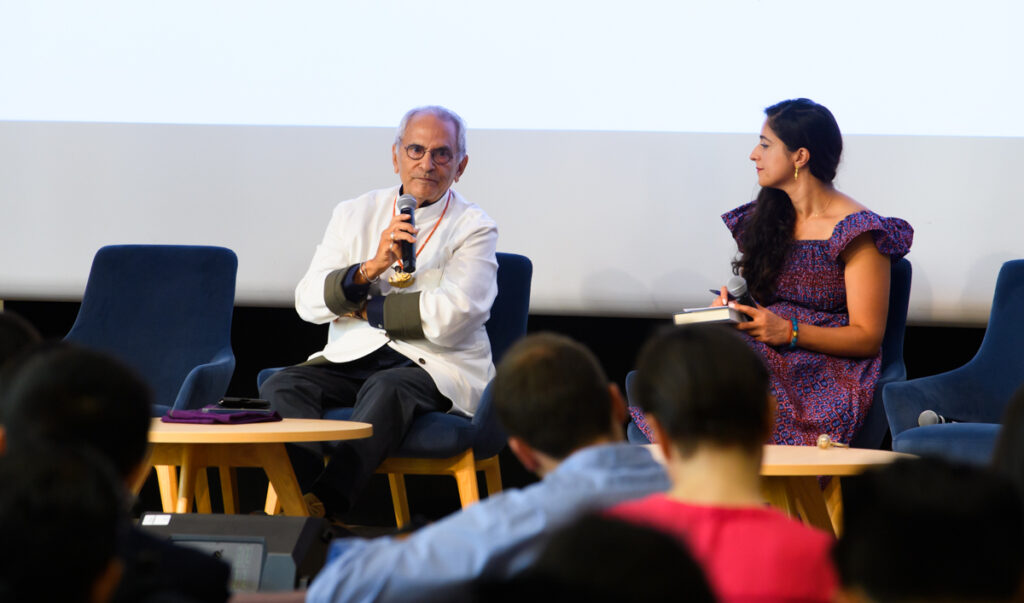
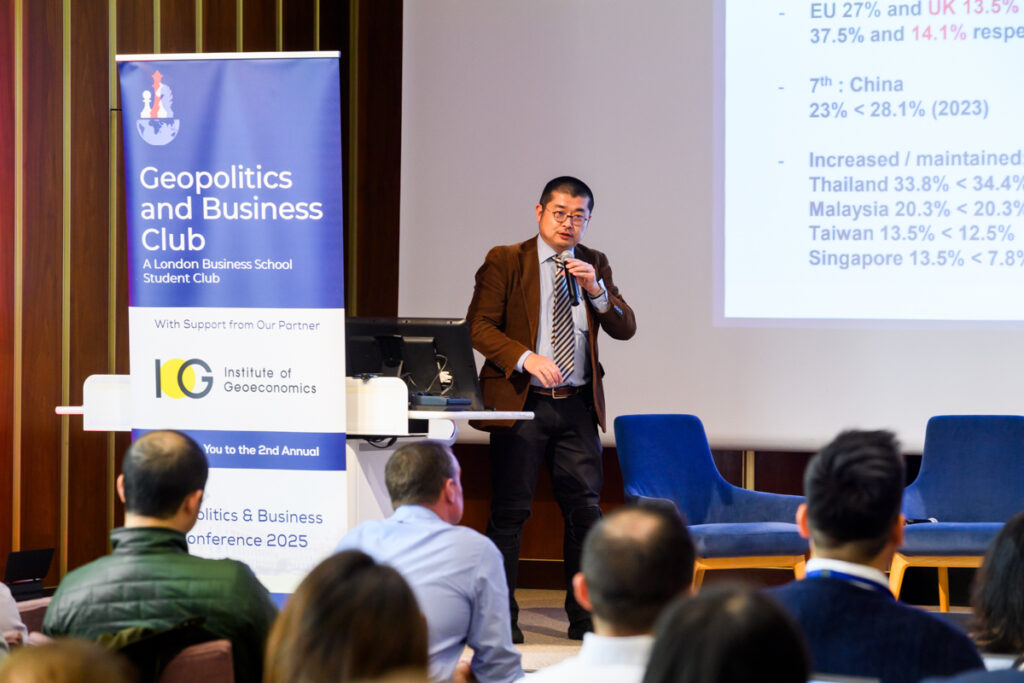
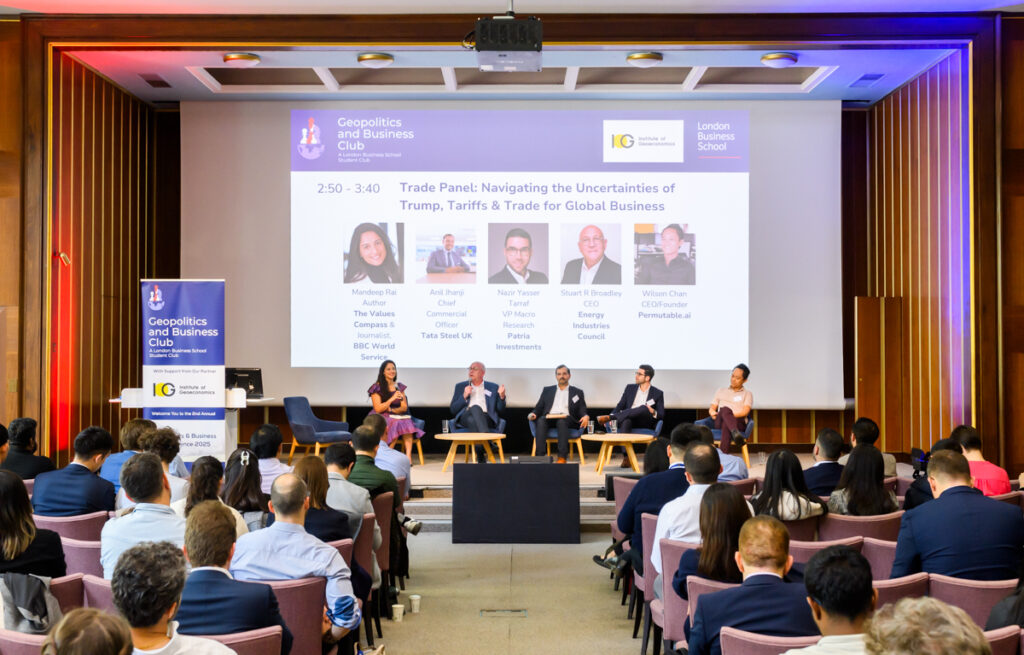
Peacebuilding in fragile states: Timor-Leste and beyond
The keynote address by President Ramos-Horta offered a profound example of resilience, reconciliation, and recovery. His story covered years of navigating diplomacy – from leading Timor-Leste’s independence movement and surviving an assassination attempt, to mediating hostage crises and engaging in UN-led peacekeeping missions. His reflections positioned Timor-Leste not only as a case study in post-conflict nation building, but as an example in a period of declining international cooperation.
One of the most compelling messages from President Ramos-Horta was the idea that smaller countries can act as stabilisers in their regions. His proposal for ASEAN to act as a diplomatic bridge between the United States and China shows the value of constructive strategic neutrality. For Timor-Leste, neutrality is an active policy choice made with clear strategic reasons. This approach also offers lessons for how businesses operate in emerging markets. Long-term commercial success depends on understanding historical context, as well as investing in human capital, and contributing to the institutions that are the foundation of peace and justice in a country. His emphasis on education, infrastructure, and citizen engagement reflects this perspective. When business leaders work with local communities, they can support both business goals and broader social stability.
Equally important was the reminder that peace is a process. Timor-Leste has built strong democratic foundations, now reflected in its high levels of media freedom. These were developed through collective dialogue, international cooperation, and patient building of institutions.
Japan’s corporate outlook among global shifts
Insights from a recent survey of over 100 Japanese companies showed how business leaders in Japan are navigating increasingly volatile global landscape. Tariffs, cybersecurity, and shifting R&D priorities (particularly in semiconductors) rank among their main concerns. The data reveals a growing polarisation in strategy: while some Japanese firms are scaling back operations in China due to geopolitical risks, others are increasing their investment to maintain market share. An expanded presence in Washington also signals that Japanese companies increasingly view geopolitical awareness as essential to long-term business success.
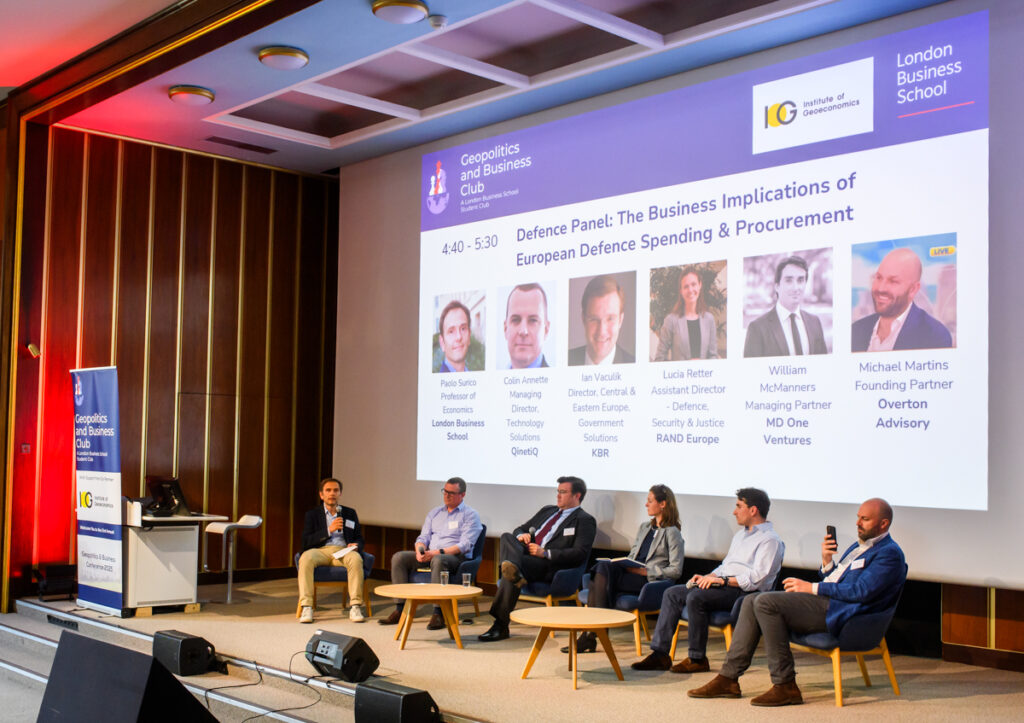
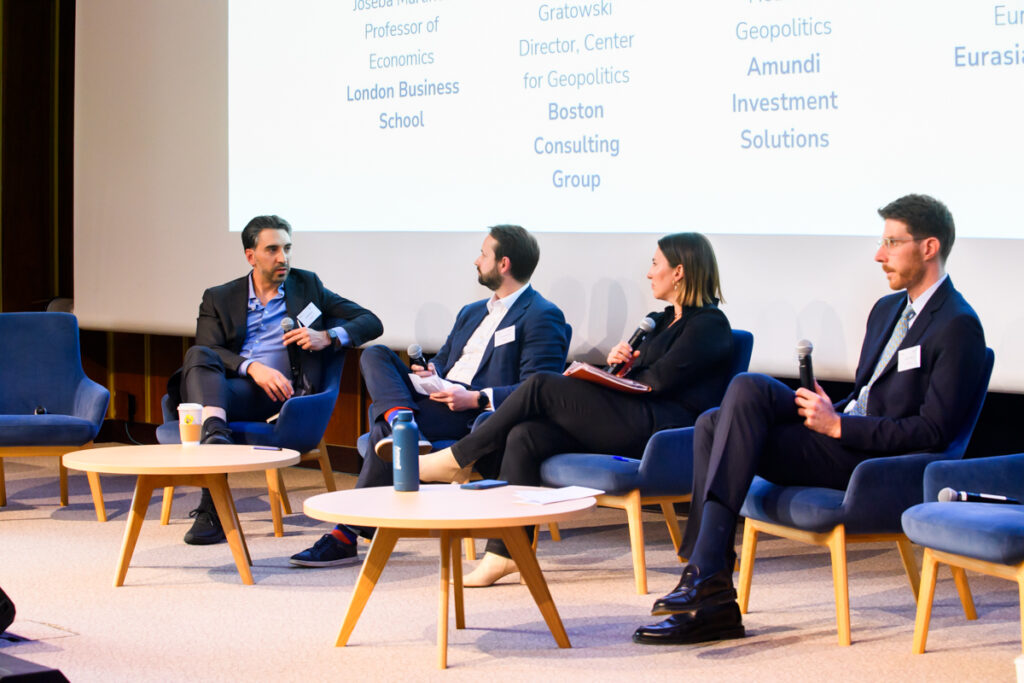
AI, sovereignty, and the fragmentation of the digital world
The afternoon continued with a panel on the geopolitics of AI and semiconductors adding a forward-looking dimension to the discussions. The session highlighted critical emerging challenges in digital autonomy, technological infrastructure, and oversight.
With a large number of digital regulations and more than 240 regulatory bodies in the EU alone, it was clear that Europe’s regulatory environment, while well-intentioned, is creating headwinds for innovation and competitiveness. Many global technology firms now delay launches or deprioritise Europe due to compliance burdens, further solidifying US dominance in AI foundational models and digital platforms. Meanwhile, China’s state-led tech strategy has created their its technology stack that rivals the Western model, and which other emerging economies may choose to adopt. The fragmentation of digital ecosystems is now becoming a reality, and both governments and companies are finding ways to navigate those changes.
In this context, the idea of a “corporate foreign policy” is gaining importance. Firms are navigating export controls, data privacy laws, cyber threats, and geopolitical changes, while building products that serve a global customer base. The stakes are high because access to AI infrastructure and training data will increasingly determine national competitiveness, feeding into the wider geopolitical shifts. The session also explored the ethical dimension of AI deployment, highlighting that it matters who builds foundational models, as well as the cultural and governance context in which they are trained.
Tariffs, security, and the European recalibration
Another notable theme running through the sessions was the recalibration of Europe’s economic and security strategies in response to shifting global dynamics. Over the past decade, the continent has grappled with a series of shocks – from Brexit to the war in Ukraine and supply chain disruptions. These have challenged its foundational open markets assumptions. Yet these challenges also present a moment of renewal. Europe’s evolving trade and industrial policies, including the use of targeted tariffs in sectors such as green technology and semiconductors, reflect a broader shift toward strategic autonomy, which marks a strategic move toward long-term resilience.
Security concerns were also driving the agenda of the conference. As geopolitical risks proliferate and European policymakers are confronting the need to rearm, diversify energy sources, and rethink critical dependencies. Defence spending is rising, and dual-use technologies are now central to industrial policy. For businesses, this means navigating a landscape where supply chains, investment flows, and regulatory frameworks are increasingly shaped by security agendas.
There is a growing recognition that European economic openness must be balanced with resilience. The emphasis is moving towards strategic interdependence, where innovation, competitiveness, and resilience are crucial. By investing in innovation, closing regulatory gaps, and building coalitions with like-minded partners, the continent can turn this period of geopolitical uncertainty into a foundation for sustainable and inclusive economic leadership.
The future of business leadership in a multipolar world
The Geopolitics and Business Conference was not just about current events, as it also encouraged a fresh look at how business and global issues are connected. As the world becomes more contested and multipolar, business leaders are already taking a broader, more politically aware approach to strategy. Companies are increasingly expected to understand and respond to global challenges. This might mean working in politically sensitive markets, adapting to technological shifts, or keeping up with international developments. By building geopolitical awareness into their decision-making, businesses will be better equipped to manage both risks and opportunities in the coming years. Additionally, the example of Timor-Leste shows that stability and progress can emerge from the most fragile contexts – with the right mix of leadership, cooperation, and long-term investment.
Geopolitics Leadership Club
The Geopolitics and Business Club aims to enhance future business leaders’ awareness and knowledge of geopolitical issues to help them tackle business challenges across the world. The club hosted their first flagship conference in 2024, supported by the Wheeler Institute which brought together students, academic experts, and business professionals, with the aim to facilitate the exchange of ideas, deepening the understanding of key geopolitical issues and their business implications.
About the author

Gabriela Tomova (MIF 2025) is a Masters in Finance student at London Business School. Prior to the MiF, she completed her undergraduate studies in Economics at Erasmus University and worked at the London office of JPMorgan in product development with a focus on fintech and technology in capital markets. Gabriela is an intern for the Wheeler Institute, contributing to the creation of content that amplifies the role of business in improving lives.
